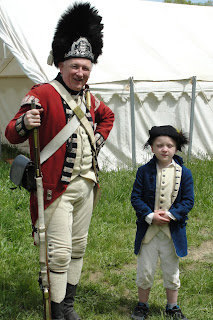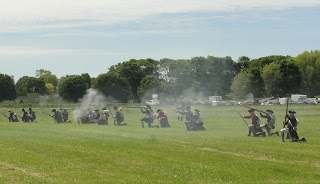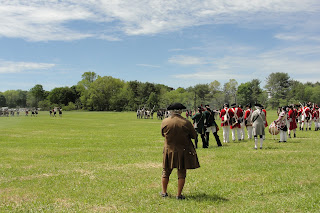Musings
Saturday, March 24, 2018
Wednesday, March 7, 2018
An Age Old Problem or an Old Age Problem
I was in my
branch library recently. I’ve noticed
that young librarians dress very hipster, as opposed to the old Marion the
Librarian stereotype. I don’t mind, as I
dressed very hippie during the Age of Aquarius. Each generation has its own
style.
I however
had to conform to a dress code back in the 1970s when I went to work. No pants were allowed in my first job, no
sandals in my second. I don’t know how
that wearing pants would have affected my job performance, but those were the
rules.
The
circulation librarian was helping an older woman with the copy machine. They were each having a hard time. The patron couldn’t wrap her mind around the
instructions she was getting, and the librarian didn’t understand and wanted to
show the older woman how it’s done.
If the
librarian had stepped away, I would have just made the copies for the
patron. It would have been quicker and
easier for all concerned. But I’m just a
patron myself now.
The older
woman was probably born in the 1930s, and maybe had not kept up with technology
through the decades. Technology can be
hard for younger people, and a total foreign land for the elderly. I would also imagine that a woman of her
generation was possibly a home body, whose husband had taken care of the trials
of the outside world for the family.
They each had a role. And
possibly, any time she may have tried to venture beyond that role, she had been
told that he would take care of it.
So she must
have heard, no, you can’t; no, you can’t; no you can’t; over and over growing
up and as an adult. If you’re taught you’re
not capable, you start to believe it. And
this is where she was probably coming from in her old age, looking at a copier
with an LED readout, a separate machine for placing money, a confusingly marked
platen for placing her papers.
I remember
my mother, born in the 1920s, having a hard time making phone calls once area
codes had to be dialed before the number.
My dad, never patient, took over dialing all calls. (And here I am, talking about “dialing calls.”) My mother lost this skill, but he probably
thought he was helping her. That was his
job, to help and protect her. So he took
it all on, until he just dropped dead at 76.
These roles
that were so firmly ingrained did little service to either men or women. Prices were paid, high ones, and I wonder
what potentials were missed out on.
The young
librarian, probably born in the 1980s, growing up under Title 9, was told her
sports were as valid as the boys’, was able to take shop if she wanted, and not
have to deal with a home economics class.
She hadn’t heard that statement (no, you can’t; no, you can’t; no, you
can’t) and probably didn’t understand how undermined the patron had been.
I was born
in the 1950s, and am of generation that bridges the changes in women’s
priorities. When I was in eighth grade,
the girls took home ec, the boys took wood shop.
There was no choice, or expectation of choice. Little girls often still held back in crowds,
because girls were delicate, and boys were rough. (Again, no, you can’t; no, you can’t.) There were tomboys, of course, but they were
exceptions, and even had a special name--tomboys. They engaged in sports, climbed trees and
cliffs, and were more adventurous. I don’t
know if they were braver, or had a different kind of home support, or just didn’t
care.
A retired
school teacher told me once that he thinks that Title 9 is what has really
leveled the “playing field” (pun intended) for both boys and girls. Little girls aren’t barred from activities
just because they’re not feminine or too masculine. They’re not hearing no, you can’t, so much
anymore. Yes, it’s moved the bar to a
more equitable spot, for both men and women, and is good for both.
I took my
niece’s children out for a guided hike recently. There was a hike leader who showed us birds’
nests, and animal burrows, and the remains of a ship wreck. My seven year old niece was right at the
front, getting the best view, being engaged.
Being fearless and fierce. She
was born in this decade, and she’s been hearing yes, you can; yes, you can;
yes, you can. And it shows.
So that’s
how far the bar has moved in 80 years. We
don’t use the terms tomboy or homebody so much anymore. People don’t have to be round pegs to go into
round holes. It’s good for my great
niece and for her older brother too, who will be able to find a partner in his
life who will expect to face challenges equally. He can now hang back if he’s a little tired,
or push forward if he’s not. I imagine
life being a wonderful adventure for both these children, and look forward to
see how each of them blossom and grow.
As for me, I
do my best to turn off that channel in my head say no, I can’t, and turn it to
yes, I can.
Sunday, May 21, 2017
Revolutionary War Battle
It's May, 1775, and the British are under siege in Boston. Twenty thousand colonials have surrounded the city. But we do know how things worked out.
Some re-enactors were up in Newbury at the Spencer-Peirce-Little Farm today, demonstrating an imaginary battle that never happened up here on the North Shore. The colonials were in their tents, and the tricky Red Coats surprised them. Armed with cannon and overwhelming numbers, the regular British army out flanked and out gunned the Minutemen.
Here are some photos.
Some re-enactors were up in Newbury at the Spencer-Peirce-Little Farm today, demonstrating an imaginary battle that never happened up here on the North Shore. The colonials were in their tents, and the tricky Red Coats surprised them. Armed with cannon and overwhelming numbers, the regular British army out flanked and out gunned the Minutemen.
Here are some photos.
Tuesday, July 12, 2016
Peggy's Cove, Nova Scotia
One of the first stops on my Canadian Maritimes trip was to the quaint village of Peggy's Cove. Blue sky, sea, rocks, fishing boats, lobster traps; yes, the whole nautical them was present and pretty as a picture.
Labels:
Maritimes,
Nova Scotia,
Peggy's Cove
Subscribe to:
Comments (Atom)
























































